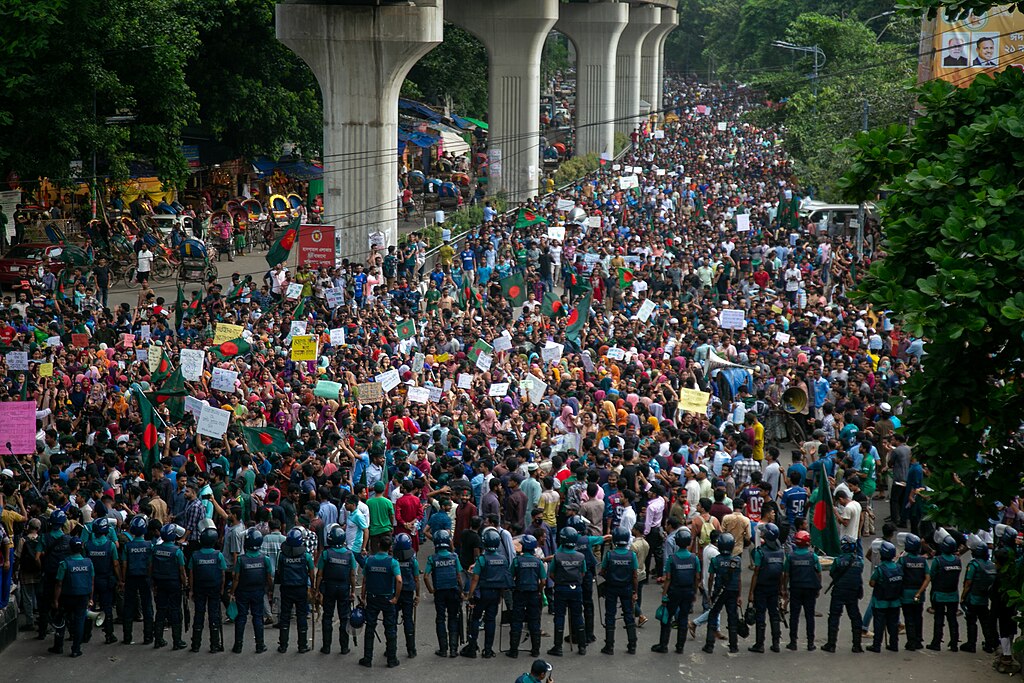
The UN High Commissioner for Human Rights, Volker Türk, urged on Wednesday for a “process of truth and healing” following the recent student protests and resignation of the prime minister in Bangladesh.
During his visit to Bangladesh, the High Commissioner for Human Rights highlighted the need for accountability. He stated the importance of “truth-seeking processes, reparations for victims, initiatives to memorialize and preserve the history, and guarantees of non-recurrence.” Furthermore, during his speech, Türk emphasized this would be the moment for reforms. The High Commissioner welcomed recent changes including the accession to the International Convention for the Protection of All Persons from Enforced Disappearance in August of this year.
Mass student protests in Bangladesh commenced in July 2024, following the announcement of a civil quota system and continuous internet blackouts which hindered freedom of expression and access to information. The quota was set to reserve government positions for war veterans and their descendants. To control the protests, the government imposed a curfew and a “shoot-on-sight order for mobs of violators.” More than 300 people were killed and 20.000 were injured according to reports. These intense protests also led to the resignation of former prime minister Sheikh Hasina in August. All this has caused what Türk described as a momentum for change. The High Commissioner claimed that this time, “reforms must be sustainable and durable, so that the abusive practices of the last decades are not repeated.”
The Office of the High Commissioner for Human Rights (OHCHR) has invited Bangladesh to accept the deployment of a fact-finding mission on human rights violations during the protests. This would help ensure justice and accountability regarding the violence civilians in Bangladesh faced.

